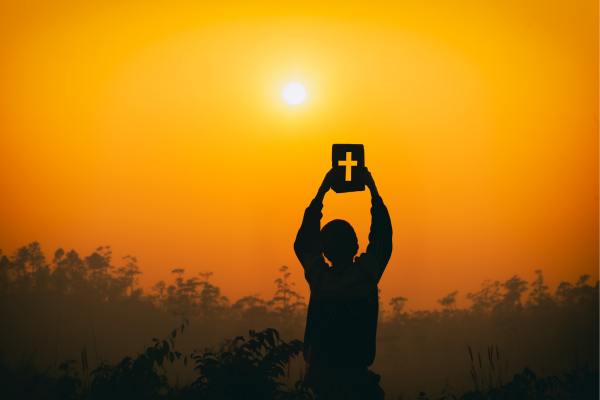Penetrating Sri Lanka: Foreign Enclaves & Global Powers-by Dr Asoka Bandarage
Source:Thuppahis
The Island, 5 September 2025 where the title reads: “Lanka: The beautiful, besieged island” ++ with highlights and “A NOTE to ASOKA” being The Editor’s Interventions
“Israelis are coming to Sri Lanka, and they’ve done what they do best — taking over the place. They’ve occupied it and made it feel like Tel Aviv. They host parties advertised as ‘no locals allowed.’ The Israelis have come to Arugam Bay, throwing raves and refusing to let Sri Lankan people attend.”
Pinnawala Elephant Orphanage, a major tourist attraction
In July 2025, the influential global travel website Big 7 named Sri Lanka the “most beautiful island in the world,” stating that the “teardrop-shaped island off the southern coast of India has it all—golden beaches, terraced tea plantations, timeworn temples, colonial towns, misty mountains, and wildlife safaris … elephants and leopards.”
The beauty of the island is not limited to its physical environment, unique Buddhist culture, and the diversity of its population; it is the simplicity, warmth, and generosity of ordinary people that make the island beautiful.
The popular perception is that international accolades boost tourism, bringing much-needed foreign exchange to the debt-trapped island and prosperity to its long-suffering people. The Sri Lankan government has set an ambitious target of attracting three million tourists and $5 billion in tourism revenue for 2025.
Tourism, however, is fickle and highly susceptible to environmental and political-economic downturns. Following the 2019 Easter bomb attacks in Sri Lanka, and during the COVID years and the 2022 economic crisis, tourist arrivals dropped sharply, bringing the entire sector to a standstill. Instead, it was the remittances from Sri Lankans working abroad that maintained external sector resilience during those crises. Even now, from January to July 2025, worker remittances have exceeded $4.4 billion, while tourism revenue reached only about $2 billion!
If managed properly, the tourism sector could play a major role in the country’s recovery. Unfortunately, this does not seem to be the case. Although tourism is asserted to be the primary foreign-exchange earner, much of the money generated by foreign-owned tourist businesses is likely repatriated abroad. Sri Lanka permits full repatriation of earnings, fees, and capital from foreign exchange transactions, though the extent of this wealth transfer remains opaque.
In Sri Lanka, as in many other tourist destinations in the Global South, tourism exacerbates global inequality and rarely helps improve local poverty. While tourist hotels overflow with all kinds of local and foreign food, drink, and luxuries, average Sri Lankans struggle to secure essential food items such as rice, dhal, coconut, and even salt. According to World Bank figures, a quarter of the island’s population is living below the poverty line, and according to the World Food Program, roughly one-third of children under the age of five are malnourished.
Lacking viable means of survival, doctors, engineers, teachers, IT professionals, and others are leaving Sri Lanka in large numbers to seek economic opportunities in Qatar, Saudi Arabia, Israel, South Korea, Japan, Italy, and elsewhere. Out of Sri Lanka’s population of 22 million, about three million are working abroad. Government policy encourages migration for employment and worker remittances, but this “brain drain” poses a serious challenge to the island’s economic recovery and future survival.
Ironically, as record numbers of Sri Lankans are leaving, record numbers of tourists are arriving. Over 2.05 million tourists arrived in 2024, representing a significant 38 percent year-on-year growth, with most visitors coming from India and Russia. The focus on quantity over quality has led to overtourism, with overwhelming numbers of visitors in popular tourist destinations such as the iconic Sigiriya Rock Fortress, Yala National Park, and the Pinnawala Elephant Orphanage. Exceeding carrying capacity has significant negative impacts on the environment, local quality of life, and the visitor experience.
This raises urgent questions: Are the short-term benefits of mass tourism worth the long-term costs? And is Sri Lanka now facing a new, more troubling phenomenon of neo-colonial globalisation—settler tourism?
The Rise of Settler Tourism
Lax visa and tourist regulations have allowed hundreds of mostly young white tourists from Europe and North America to settle in exclusive communities along Sri Lanka’s southern and eastern coasts. These enclaves—promoting perpetual paradise, surfing, yoga, and meditation—are often run entirely by foreigners living on the island for extended periods. Contrary to visa restrictions, some tourists engage in enterprises such as driving three-wheeler taxis and guiding tours, taking income opportunities from local people.
While digital nomads work remotely, others have opened hotels, restaurants, and spas, often bypassing taxes and money transfer regulations. Foreigners cannot directly buy freehold land in Sri Lanka but may acquire property through Sri Lankan companies with local majority ownership, which is often facilitated by local middlemen.
As of February 2024, more than 288,000 Russians and nearly 20,000 Ukrainians had travelled to Sri Lanka since the start of the war in Ukraine, seeking peace and quiet. In the Unawatuna beach area—nicknamed “Little Moscow”—many businesses are now owned by Russians. The stresses of war, carried by some tourists, have been expressed locally in food fights among Ukrainians in luxury hotels and aggressive exchanges between Ukrainians and Russians on Sri Lankan beaches.
Even more disconcerting is the re-emergence of white supremacy in a land that endured nearly five hundred years of European colonialism under the Portuguese, Dutch, and British (1505–1948). Many locals perceive the arrogance and aggression of some white tourists as fostering racial segregation and hierarchy, making brown-skinned people second-class citizens in their own land. A notable example is the Russian-organised “white party” in Unawatuna in February 2024, advertised as “Face control: White,” and cancelled only after sparking backlash online.
Russians are not the only settler tourists accused of being disrespectful and arrogant. Critics point out that some Israeli tourists are known for breaking the surfing code of conduct and failing to share waves with others. A post on Instagram by Australian tourist Tom Monagle, dated July 31, 2025:
“Israelis are coming to Sri Lanka, and they’ve done what they do best — taking over the place. They’ve occupied it and made it feel like Tel Aviv. They host parties advertised as ‘no locals allowed.’ The Israelis have come to Arugam Bay, throwing raves and refusing to let Sri Lankan people attend.”
Just as the war in Ukraine brought an influx of Russian and Ukrainian visitors, the war in Gaza has led to a rapid influx of Israeli tourists. According to Al Jazeera, as Israel’s military campaign intensified, the number of Israeli visitors to Sri Lanka doubled, with an estimated twenty thousand arriving in early 2024.
Israelis have acquired extensive beachfront property, especially in Ahangama. Their development of trendy, expensive restaurants has transformed local economies and cultures—benefiting only a handful of local people. Al Jazeera reports that Israeli nationals have also been involved in acts of physical violence in the south against Sri Lankans known to be vocally pro-Palestinian.
The Israeli presence in Arugam Bay, a resort on the eastern coast, has invoked even greater alarm than their expansion in the south. Many young Israeli tourists—reservists in compulsory military service—stay for extended periods, bringing with them the dynamics of Israeli state militarism.
IDF (Israel Defense Forces) tourists and others have created a Jewish enclave in the predominantly Muslim surfing town of Arugam Bay, with Jewish restaurants, Hebrew posters, and Israeli flags. An unauthorised Chabad House—part of the Chabad-Lubavitch Hasidic Movement, which is committed to the creation of Greater Israel—also exists there (others are found in Colombo, Ella, and Weligama).
In October 2024, after a U.S. Embassy travel advisory regarding threats to tourists in Arugam Bay, the town emptied out but soon returned to “normal.” As a 2025 advertisement puts it, “The sun is shining, the waves are rolling, and the good vibes are flowing—Arugam Bay is OPEN and ready for a brand new season!”
Nevertheless, local fears of future Jewish-Muslim clashes and the emergence of Arugam Bay as a military hub for United States Indo-Pacific Command (USINDOPACOM) persist.. The Sri Lankan government has not cracked down on Israeli violations, allegedly due to fears of retaliation from Western countries.
A Besieged Island
Settler tourism is only one aspect of Sri Lanka’s multifaceted besiegement. Strategically located in the Indian Ocean, Sri Lanka is caught in the geopolitical rivalry and proxy war between China and the Quad Alliance (United States, India, Australia, Japan). The country has signed the ACSA (Acquisition and Cross-Services Agreement) and SOFA (Status of Forces Agreement) defence pacts with the United States, and is increasingly drawn into USINDOPACOM efforts.
Meanwhile, Sri Lanka is also a part of China’s Belt and Road Initiative. The southern port of Hambantota is under Chinese control for 99 years, as is the new Port City in Colombo. The natural harbour of Trincomalee, north of Arugam Bay, is now under Indian control and may become an energy and military hub. India recently signed seven memoranda of understanding, still concealed from the public and media, allowing Indian control over defence, energy, electricity, health, pharmaceuticals, and digital ID. Several terminals of the busy port of Colombo on the west coast are controlled by India, Japan, and China.
Sri Lanka is “sovereign” and “independent” only in name. Besieged by external powers, the island may well become a future site of geopolitical conflict. As elsewhere, Sri Lanka’s vast resources—land, water, and people—are increasingly controlled by external forces working in complex ways with local collaborators.
Environmental collapse is another form of besiegement. Sri Lanka, dubbed the “most beautiful island,” is also one of the countries most threatened by climate change. Sea level rise is eroding 55 percent of the shoreline, at a “staggering coastal erosion rate of 0.30–0.35 meter a year.” Deforestation and biodiversity loss continue, turning both the Sri Lankan elephant and leopard into threatened species.
Whether Sri Lanka remains a paradise or becomes permanently besieged—by neo-colonialism, geopolitical rivalry, and climate disruption—depends on deeper awareness and the choices made by its leaders and people. International friends, including those who have visited the island, can also help by advocating for transparency, regulation, and local empowerment.
&&&&&&&&&&&
Michael to ASOKA, 15 September 2025
Many thanks for this wide-ranging intervention. Given Sri Lanka’s limited strength in the global economy I wonder whether the GoSL can do much against some of the dependencies you pinpoint? Thus, balancing the distribution of foreign “FOOTHOLds” at the three main ports seems to be a sensible strategy in such circumstanes.
As a person born by the sea in Galle, an avid snorkkler and a surfie of sorts, I am delighted that you have donned a bathing suit and challenged white racism and imperialist intrusions at Arugam Bay, Ahangama and Unawatuna [the kast spot one of the beaches I used to frequent in the 1950s].
PS: As Thuppahi, I too have raised questions about “White & Israeli Racism” at some resorts in previous TPS items …..





















